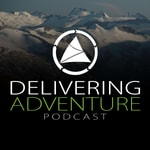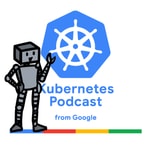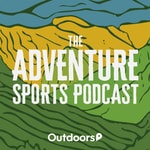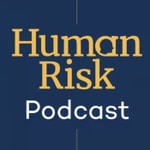Delivering Adventure – Détails, épisodes et analyse
Détails du podcast
Informations techniques et générales issues du flux RSS du podcast.

Delivering Adventure
Chris Kaipio & Jordy Shepherd
Fréquence : 1 épisode/18j. Total Éps: 62

Classements récents
Dernières positions dans les classements Apple Podcasts et Spotify.
Apple Podcasts
🇫🇷 France - wilderness
03/08/2025#19🇫🇷 France - wilderness
02/08/2025#17🇨🇦 Canada - wilderness
01/08/2025#61🇨🇦 Canada - wilderness
31/07/2025#43🇨🇦 Canada - wilderness
30/07/2025#20🇨🇦 Canada - wilderness
25/06/2025#83🇨🇦 Canada - wilderness
24/06/2025#51🇨🇦 Canada - wilderness
14/06/2025#95🇨🇦 Canada - wilderness
13/06/2025#72🇨🇦 Canada - wilderness
12/06/2025#47
Spotify
Aucun classement récent disponible
Liens partagés entre épisodes et podcasts
Liens présents dans les descriptions d'épisodes et autres podcasts les utilisant également.
See all- https://getcarv.com/
19 partages
- https://www.moosemutlow.com/
12 partages
- https://willgadd.com/
11 partages
Qualité et score du flux RSS
Évaluation technique de la qualité et de la structure du flux RSS.
See allScore global : 83%
Historique des publications
Répartition mensuelle des publications d'épisodes au fil des années.
Designing Adventure Experiences with Chris Winter
Saison 2 · Épisode 22
jeudi 29 août 2024 • Durée 50:24
How do you design adventure experiences for success? It is easy to plan big adventures but getting them to be epic for the right reasons isn’t always as easy as it looks. This is especially true when we are building experiences to deliver to paying clients, our friends or family.
Designing experiences that have the right pacing of adventure, and the right flow, can be the difference between epic disaster or exceptional experience.
Joining us to explore what it takes to design the perfect adventure experience is Chris Winter. Chris is the owner or Big Mountain Adventures which offers mountain bike adventures in 14 countries around the world. Chris also teaches and guides steep skiing clinics for Extremely Canadian in Whistler, BC.
Chris shares some of his experiences and insights into how we can structure amazing adventure experiences that we are delivering to others. He also shares some very funny stories along the way.
Key Insights
Designing amazing adventure experiences requires us to:
Know our audience: Who are you actually building your experiences for? What are their needs, interests and capabilities?
Align expectations early: This means ensuring everyone knows what they are getting themselves into. This includes aligning goals, identifying risk tolerance, addressing needs and so on.
It has to be about them: There are experiences that guides, instructors and companies may want to deliver and there are experiences that people want to experience. These two things are not always the same thing. If you want to be successful, build experiences that people want to do.
Get the Right Pacing and challenge: We want to ease into it, build in the challenge in the middle and finish with flow. This allows people to warm up and then consolidate their experience at the end.
Remember the Purpose: The goal of adventure is to push ourselves outside our comfort zone. Adventure is important and sometimes we can forget why it is so valuable. Yes, adventure is often fun, but it serves a pretty important role in our lives. This makes the ability to deliver adventure a key life skill to have.
Guest Bio
Chris Winter is a former ski racer. Level IV CSIA ski instructor, level III high-performance ski coach, celebrated technical skier, sponsored big mountain skier featured in magazines and films. Currently teaching steep skiing clinics at Whistler Blackcomb for Extremely Canadian.
Chris is the Owner and Founder of Big Mountain Adventures. Chris founded Big Mountain Adventures in 2002. During this time, he has built his tour company into the leader in guided mountain bike travel featuring award-winning adventures in 14 countries. Check out their new eMTB trips!
Chris is also the owner of the Bralorne Adventure Lodge. Ready for a boutique mountain experience? Step out the door to spectacular wilderness & endless adventures…then recharge at our backyard spa.
In addition to operating adventure-based businesses, Chris has also created and developed Zero Ceiling. This is an innovative and respected registered non-profit that hosts disadvantaged youth to the slopes of Whistler Blackcomb. From local First Nations to street youth to youth from Vancouver's Downtown Eastside, participants benefit from a day of snowboard lessons, or if chosen to participate in a year-long program that teaches them to become employees at Whistler Blackcomb and give them life-long life skills.
Guest Links
Big Mountain Adventures: https://www.ridebig.com
Bralorne Adventure Lodge: https://www.bralorneadventurelodge.com
Zero Ceiling:
Case Study: Planning for Mishap with Will Gadd
Saison 2 · Épisode 21
mercredi 7 août 2024 • Durée 17:28
Adventures have risks. It doesn’t matter how much you plan, or how well you manage situations, if you are having an adventure, something can go wrong. It is impossible to make adventures 100% safe. If they really are safe, then there isn’t any risk which means they aren’t going to be adventures!
For this reason, planning for mishaps, emergencies and surprises is another essential step when it comes to delivering adventure.
In this episode, we share a story from ACMG Alpine Guide and professional athlete Will Gadd to highlight the importance of planning for mishap. Will’s story takes place on the Fuhrmann Ledges in Banff National Park and is an excellent example of the value of planning for mishaps, even when you think there is a low risk of something going wrong.
Will Gadd has a long list of accomplishments including first ice climbing ascents of Niagara Falls and on Mt. Kilamjaro, winning three gold medals at the X Games, and setting the paragliding world distance record twice.
Key Takeaways
Here are a few things that Will did very well:
Communicating the Risks: This includes Will communicating what could happen to his clients and himself. In this instance it’s a given that Will would have had his clients sign a waiver and would have talked to them beforehand about the risks they could face.
Discussing the Plan in the Event of a Crisis: This put the idea in their heads that rock fall could happen. More importantly it helped to prepare them for the moment when it actually did happen.
If you fail to plan you plan to fail.
Being Situationally Aware: Even though Will felt that there wasn’t a high probability of rockfall, he still went through the process of preparing everyone, looking for signs that rockfall had occurred recently, and encouraging his clients to do the same.
Five Hazardous Attitudes: At least one of the Five Hazardous Attitudes that is always present in human caused accidents. They are Anti-Authority, Impulsivity, Invulnerability, Macho and Resignation.
Guest Bio
Will Gadd is a professional sponsored athlete and ACMG Alpine Guide. Among many of Will’s feats are first accents ice climbing Niagara Falls, Helmcken Falls, Icebergs and many other ice climbs around the world including on the top of Mt Kilimanjaro. Will is also a world-class white-water kayaker and paraglider. He has twice set the world record for the longest paragliding flight.
As an elite athlete and professional guide, Will is extremely experienced when it comes to evaluating risk and making decisions that could have serious consequences for himself and the people he is leading or working with. This makes Will one of the perfect people to talk about the power of judgment.
Guest Links
Contact Will to be your Guide, Instructor or Speaker: https://willgadd.com/
Instagram: @realwillgadd
The Last Ascent, Kilimanjaro: https://www.redbull.com/ca-en/films/the-last-ascent-will-gadds-return-to-kilimanjaro
A Fun Ted Talk: Three Simple Tools to Manage Risk, Fear and Children: https://www.youtube.com/watch?v=MTdFkPTTnsA
Follow or Subscribe
Don’t forget to follow the show!
Share & Social Links
Managing Plan Continuation Bias with Mike Adolph
Saison 2 · Épisode 12
jeudi 14 mars 2024 • Durée 36:01
Have you ever pushed forward with something even when it became clear that you should probably change your plan or abort? If so, you may have succumbed to plan continuation bias. When this happens, we can become predisposed to continue towards completing our original plan, even when conditions change, or new information becomes known that indicates that continuing on is not advisable.
Mike Adolph joins us to discuss some of the strategies that we can use to recognize and manage plan continuation bias. Mike Adolph is an ACMG / IFMGA Mountain Guide and is the current Technical Director of the Association of Canadian Mountain Guides.
Mike dips into his extensive guiding and instructing experience to share some great examples and advice.
Key Takeaways
What is plan continuation bias: It is when a person ignores the fact that conditions or the situation has changed in a way that should cause them to rethink their initial plan, but the person decides to push on towards their objective anyway.
Reasons for plan continuation bias: There are often a number of human factors at play including pressure to keep going from others, a need or desire to make money if you are getting paid to keep going, and a belief that we are more likely to experience a positive outcome. We may also end up ignoring or downplaying information that indicates that we should change course.
Set key decisions points beforehand: For example, we will decide if we continue once we reach the ridge, or after lunch, or once we have worked on this skill.
Removing pressures beforehand: Examples of this can include communicating expectations, decision points and the overall plan beforehand.
Guest Bio
Mike Adolph is an ACMG / IFMGA Mountain Guide and the current technical director of the Association of Canadian Mountain Guides. In addition to guiding custom outdoor adventures for small groups, Mike also works as a guide trainer and examiner for the ACMG’s Training and Assessment Program.
Mike started in the outdoor industry in 1994 after his family, in a joint venture, opened the Sheiling Mountain Lodge and the Center for Outdoor Education in Nordegg, Alberta. He completed his final ACMG exam and received his IFMGA International Federation of Mountain Guides Association Mountain Guide designation in 2009. He always admired his instructors and examiners, even if they were a bit harsh at times, which lead to him getting involved with the instructor/examiner team in 2012. When the job posting for the interim ACMG technical director came up in 2018, he thought, why not?
The mountains have taught him to be open to all possibilities, have several options and go with the flow. I feel lucky to have this as a career and am extremely grateful to my loving and understanding wife Jennifer and our two boys Lucas and Tyler.
Guest Links
ACMG Technical Manuals: https://www.acmg.ca/03public/resources/publications.aspx
Association of Mountain Guides: www.acmg.ca
David Thomson Via Ferratas: www.viaferratacanada.com
Mike Adolph Email: msadolph@gmail.com
Mike Adolph Instagram: @ mikeatcoe
Avalanche Hour with Mike Adolph: https://soundcloud.com/user-23585762/avalanche-hour-podcast-mike-adolph-acmg-10
Follow or Subscribe
Don’t forget to follow the show!
Share & Social Links
Managing Misadventure with Moose Mutlow
Saison 2 · Épisode 11
jeudi 29 février 2024 • Durée 01:04:08
Managing Misadventure with Moose Mutlow
Can misadventure be turned into a positive experience? In this episode we are joined by Moose Mutlow who helps us to better understand what misadventure is, and how we can find value in it.
Moose has nearly forty years of experience as a guide, outdoor educator, and in Search and Rescue. He has worked around the world from the Kalahari Desert to the Florida Everglades, to Yosemite where he now lives. He is the author of two books and has extensive experience in family liaison and incident command.
Key Takeaways
Defining Misadventure: Misadventure is something that doesn’t go well but you can end up with a good story to tell afterwards.
Misadventure has a range: They can go from being funny stories of bad decisions to catastrophic disasters. It goes without saying that we are trying to avoid the latter as they can be very traumatic.
Story telling component: Both adventures and misadventures are defined by the stories that we can tell about them afterwards. Containable misadventures often have much more engaging stories to tell than adventures that go perfectly well.
Course correction: Being able to take a step back and look at the situation is often what stops things becoming an epic misadventure.
Taking a pause can help us to slow things down so that we can articulate the decision-making process effectively, instead of just getting caught reacting to situations. This can often lead to worse outcomes.
Reasons for misadventure: People underestimate the challenge and overestimate their ability and fail to plan and prepare ahead.
Keep people in the Challenge Zone: You have your best gains when you operate just outside your comfort zone. Taking people right the edge of the extreme is counterproductive and is rarely that beneficial. Instead, we should be trying to put people in what I call the challenge zone which is where we feel excitement, but we aren’t so overwhelmed that we develop tunnel vision and are gripped with stress.
Managing Misadventure: Realize when people are stressed, own mistakes that are made and draw attention to lessons learned along the way and try to keep it fun. Careful use of humour can be a useful tool on this last point.
Guest Bio
Moose Mutlow has nearly 4 decades of traditional and alternative education experience around the globe. He has course directed 58-day Outward Bound instructor trainings in Appalachia, been a deputy headmaster in the Kalahari Desert, managed a beach concession on the Mediterranean, slogged through Australian rain forests with middle school students, has more than 2000 days of field instruction in a wilderness setting, spent four months as the Interim Head for an elite ski academy, and returned to Outward Bound to instruct a canoe program for Veterans on the Gulf of Mexico.
Since 2002 Moose has been a member and senior trainer of Yosemite Search and Rescue, working as a technician and within Incident Command, at one of the busiest SAR operations in the world.
Moose currently works for NatureBridge in Yosemite National Park as the Senior Projects Director for planning, design and construction of the National Environmental Science Center.
Moose has written two books, Searching: Finding Purpose, Laughter & Distraction Through Search & Rescue and When Accidents Happen: Managing Crisis Communication as a Family Liaison Officer.
Guest Links
Moose Mutlow: www.moosemutlow.com
Searching: Finding Purpose, Laughter & Distraction Through Search & Rescue:
Case Study: Selling People on What They Need with Ken Bélanger
Saison 2 · Épisode 10
jeudi 15 février 2024 • Durée 22:58
In this episode, Ken Bélanger shares a funny Heli skiing story that highlights the challenges of trying to talk people out of doing something that will probably not meet their needs in the long run. We look at some of the lessons learned from Ken’s story and offer some strategies to manage these types of situations.
Ken Bélanger is an ACMG Ski and Hiking Guide and the owner of Elevation Guides. Ken’s story highlights the difficulties that leaders can face when they are trying to balance giving people what they want versus what they really need but may not realize it.
Key takeaways
How can we sell someone into do something they need, when they don’t think they want it? Here are four options:
Try Persuasion: Strategies include reasoning with them, offering to do something better, tell them that what they won’t enjoy whatever it is they want to do. Avoid telling people they can’t do it, this can just sound like a challenge to some people.
Use Force: When the level of risk is high, you may have to force them to do something they may not think they want to do. Strategies include a hard no, cresting and sighting rules, and having to attain a skills-based objective or proficiency level before doing something harder.
Let them Suffer: If there is a low risk of serious consequences, it is possible to give people a taste of how hard of uncomfortable a situation will be if they don’t do what you are suggesting. This only works if it is safe and there is an escape route.
Hope that it works out: When there is a low risk, they refuse to change course or listen to you, the damage can be contained or there are no other options, you may have to just hope things work out!
Guest Links
Elevation Guides: www.elevationguides.ca
Ken Bélanger on Instagram: @elevationguides
Guest Bio
Ken Bélanger is an ACMG Ski, Hiking, and Via Ferrata Guide, CAA Professional Member, CANSI Level 1 Nordic Ski & Telemark instructor, CSIA level 1, and Advanced Wilderness Adventure Medic.
Although Ken grew up in Calgary not far from the mountains with his single father and two brothers, they didn’t have the financial means to explore them. It wasn’t until his late teens when he could self-fund trips that he finally discovered skiing and hiking.
He was immediately hooked. It was a steep learning curve to overcome his fear of heights and water, but within a few years he was instructing and guiding water-sports, climbing, cycling, and nordic and telemark skiing.
Ken considers himself extremely fortunate to have learned under some fantastic guides and instructors along the way.
Now operating Elevation Guides with nearly 30 years of guiding experience in 23 countries, he couldn’t imagine a better career. Ken resides in Canmore, Alberta at the doorstep of beautiful Banff National.
Follow or Subscribe
Don’t forget to follow the show!
Share & Social Links
How to Communicate Risk with Will Gadd
Saison 2 · Épisode 9
jeudi 8 février 2024 • Durée 57:03
At the heart of every adventure, is a degree of risk taking. Being able to communicate the level of risk that people can expect to be exposed to is an important component of delivering adventure to others recreationally and professionally.
There is nothing worse than exposing someone to a situation that has an elevated level of risk or challenge and having them turn around and tell us that this is not what they expected. When this happens, the blame almost always lands on the leader.
Helping us to examine how we can communicate risk more effectively, is friend of the show, Will Gadd. Will is a world class climbing, paragliding and white-water kayaking athlete. In addition to undertaking many adventures around the world as a professional athlete, Will also guides others professionally and is a certified ACMG Alpine Guide.
In this episode we explore why it’s important to communicate risk and discuss some of the strategies that allow us to do it more effectively.
Guest Bio:
Will Gadd is a world class climbing, paragliding and white-water kayaking athlete. In addition to undertaking many adventures around the world as a professional athlete, Will also guides others professionally and is a certified ACMG Alpine Guide.
Some of Will’s career highlights include:
- Establishing the hardest mixed ice climbing lines in the world.
- Setting the world distance record for paragliding. Twice. 423 km (263 miles) the second time.
- Kayaking down dozens of first ascents across North America.
- Winning the Canadian National Sport-Climbing Championships. Four times.
- Winning three gold medals at the X Games.
Will has also been recognized as a mountain hero by the United Nations for his efforts to raise awareness for environmental issues including how climate change is affecting the mountain environment.
Guest Links:
Contact Will to be your Guide, Instructor or Speaker: https://willgadd.com/
Instagram: @realwillgadd
The Last Ascent, Kilimanjaro: https://www.redbull.com/ca-en/films/the-last-ascent-will-gadds-return-to-kilimanjaro
A Fun Ted Talk: Three Simple Tools to Manage Risk, Fear and Children: https://www.youtube.com/watch?v=MTdFkPTTnsA
Key Takeaways:
The role of risk communication is to: Inform everyone of what to expect, so that people know what can happen, how likely it is and how risks will be managed, can provide the leader with informed consent.
Getting informed consent: Getting informed consent involves communicating the risks that will be faced in a way that people can understand and process accurately. Only when people have an understanding of what can happen to them, can they give informed consent to undertake that activity.
The challenge with getting informed consent is that in some circumstances it can be difficult and even impossible to inform people effectively.
When it comes to communicating risk: Do it at the start, end and during an event. You should be informing people any time you are going to be taking on an increased level of risk or you are about to do something that is completely new to them.
Involving people in the decision-making process: Anytime there is going to be an elevated level of risk, or there is a new situation that people have not encountered, leader should probably consider involving their group in the decision-making process.
Follow or Subscribe
Don’t forget to follow the show!
Share &
Improving Performance in a Crisis with André-Jean Maheu
Saison 2 · Épisode 8
vendredi 2 février 2024 • Durée 52:23
How can we improve our performance in a crisis? We spend a lot of time talking on Delivering Adventure about how we can avoid finding ourselves in crisis. However, despite our best efforts, we can all end up finding ourselves in situations where either ourselves or the people we are with end up in a crisis. In this episode, André-Jean Maheu helps us to explore how we can improve our performance when stressful situations cause us or others to lose control.
AJ has worked as an adventure guide, ski patroller, avalanche forecaster, first aid instructor, and paramedic. He is also active in Search and Rescue and operates the North Shore Snowpack YouTube channel.
Guest Bio
AJ Maheu began his career in the outdoor industry over 30 years ago. After spending a decade instructing, guiding river trips in Québec, and hikes from Alaska to the Andes he shifted his focus to emergency response in remote settings. He worked as a paramedic on worksites on Baffin Island and began a 20-year-career teaching wilderness first aid. He has taught emergency preparedness and first aid in multiple adventure travel guide programs in 6 different colleges and universities across the country.
AJ Maheu is an avalanche professional and member of the Canadian Ski Guides Association. He has also worked as a professional ski patroller for the past 20 years. He is active in many spheres of the avalanche industry including forecasting for industrial operations, search and rescue, and ski resorts as well as instructing and guiding.
AJ runs the North Shore Snowpack YouTube channel, providing weekly snowpack information to backcountry users and is a brand ambassador for Nano Traino, manufacturer of high quality, packable emergency evacuation toboggans. When not working, he is busy delivering adventures for his 2 boys, taking them on family adventures.
Guest Links
North Shore Snowpack YouTube Channel: https://youtube.com/@northshoresnowpack?si=eZClzV6KePi3hYwb
Nano Traino: https://nanotraino.com/en/
Key Takeaways:
Managing performance effectively in a crisis: Best strategy is to keep yourself out of the crisis zone. When we are gripped with a crisis, it becomes very hard to counter our instincts of fight or flight. Our ability to think straight also becomes quite compromised. This means the best strategy to manage a crisis is to avoid losing control to begin with.
To prepare for a crisis: You need to practice. Preparation can pull you through stressful situations.
When you practice, make sure it’s meaningful. This means it has to have specific objectives.
Make it realistic, go through all the steps with no short cuts. Practicing should outline what is difficult. It should have an element of stress.
Reduce your vulnerability: Vulnerability is your inability to withstand a hostile environment or consequences. It is important to realize how vulnerable you are.
Spending a lot of time looking at the foreseeable can help to recognize when you are going to be more vulnerable. This can help us to identify the things that can cause us to lose control to begin.
Stay focused on building momentum: Adopt a proactive mindset where you focus on the things that you can do.
Follow or Subscribe
Don’t forget to follow the show!
Share & Social Links
Understanding Performance in a Crisis with André-Jean Maheu
Saison 2 · Épisode 7
jeudi 25 janvier 2024 • Durée 43:16
When it comes to adventure, a crisis can come in many forms ranging from getting lost, getting injured, pushing well past our capabilities and being faced with the prospect of disaster. It’s fair to say that being able to navigate through a crisis if one happens, is an essential skill for delivering adventure.
In this episode, we are joined by AJ Maheu to gain a deeper understanding of what happens to us in a crisis and how that affects our performance. AJ taps into his extensive adventure industry experience as a ski patroller, guide, first aid instructor, paramedic, avalanche forecaster and adventure educator.
Guest Bio
AJ Maheu began his career in the outdoor industry over 30 years ago. After spending a decade instructing, guiding river trips in Québec, and hikes from Alaska to the Andes he shifted his focus to emergency response in remote settings. He worked as a paramedic on worksites on Baffin Island and began a 20-year-career teaching wilderness first aid. He has taught emergency preparedness and first aid in multiple adventure travel guide programs in 6 different colleges and universities across the country.
AJ Maheu is an avalanche professional and member of the Canadian Ski Guides Association. He has also worked as a professional ski patroller for the past 20 years. He is active in many spheres of the avalanche industry including forecasting for industrial operations, search and rescue, and ski resorts as well as instructing and guiding.
AJ runs the North Shore Snowpack YouTube channel, providing weekly snowpack information to backcountry users and is a brand ambassador for Nano Traino, manufacturer of high quality, packable emergency evacuation toboggans. When not working, he is busy delivering adventures for his 2 boys, taking them on family adventures.
Guest Links
North Shore Snowpack YouTube Channel: https://youtube.com/@northshoresnowpack?si=eZClzV6KePi3hYwb
Nano Traino: https://nanotraino.com/en/
Key Takeaways:
Definition: According to AJ, a crisis is when we lose control. We may have had a critical period before we lost control where we were holding things together. During this critical period there is usually an element at risk like our physical well-being, or the safety of others. However, if that situation deteriorates, that element at risk is compromised and we can no longer keep things together and we can end up in a crisis.
Subjective: A crisis is a very subjective event. Two people can be in the same event and have a crisis for different reasons. Of course, two people can also be in the same incident and maybe only one of them has a crisis.
During a crisis: Physiologically we get a surge of adrenaline which prepares us for action. This puts us in a state of fight or flight. This causes our muscles to tense up and leads to tunnel vision. It becomes hard to analyze mentally as our capacity to process everything that is going on is reduced. Eventually we can become physically incapacitated.
Managing others: It can be very difficult to manage people when they are experiencing a crisis. 10-20% of people are predisposed to act appropriately in a crisis. That means that when people are faced with a crisis, 80-90% of people will experience some level of paralysis or loss of performance.
Unreasonable: When people have adrenaline flowing through their bodies and they are gripped with panic, it is impossible to reason with them. This means that people may need time to process things before debriefing them Also, trying to downplay their feelings can backfire on you as AJ learned.
Follow or Subscribe
Don’t forget to follow the show!
Share & Social Links
Understanding Human Factors & Judgment with Mike Adolph
Saison 2 · Épisode 6
jeudi 18 janvier 2024 • Durée 55:19
Why is it so hard to make good decisions? One of the factors has to do with what are called the human factors. These include cognitive biases, heuristics, personal motivations, and preferences.
One person who sees the human factors in high consequence environments is Mike Adolph. Mike is an ACMG / IFMGA Mountain Guide and the current Technical Director of the Association of Canadian Mountain Guides.
In this episode, Mike helps us to understand what human factors are, what some of the more common ones are and what we can do to reduce their negative impact on our decision-making abilities.
Guest Bio
Mike Adolph is an ACMG / IFMGA Mountain Guide and the current technical director of the Association of Canadian Mountain Guides. In addition to guiding custom outdoor adventures for small groups, Mike also works as a guide trainer and examiner for the ACMG’s Training and Assessment Program.
Mike started in the outdoor industry in 1994 after his family, in a joint venture, opened the Sheiling Mountain Lodge and the Center for Outdoor Education in Nordegg, Alberta. He completed his final ACMG exam and received his IFMGA International Federation of Mountain Guides Association Mountain Guide designation in 2009. He always admired his instructors and examiners, even if they were a bit harsh at times, which lead to him getting involved with the instructor/examiner team in 2012. When the job posting for the interim ACMG technical director came up in 2018, he thought, why not?
The mountains have taught him to be open to all possibilities, have several options and go with the flow. I feel lucky to have this as a career and am extremely grateful to my loving and understanding wife Jennifer and our two boys Lucas and Tyler.
Guest Links
Association of Mountain Guides: www.acmg.ca
David Thomson Via Ferratas: www.viaferratacanada.com
Mike Adolph Email: msadolph@gmail.com
Mike Adolph Instagram: @mikeatcoe
Avalanche Hour with Mike Adolph: https://soundcloud.com/user-23585762/avalanche-hour-podcast-mike-adolph-acmg-10
Follow or Subscribe
Don’t forget to follow the show!
Share & Social Links
Power of Good Judgment with Will Gadd
Saison 2 · Épisode 5
lundi 15 janvier 2024 • Durée 50:55
Is good judgment the most important skill to have when it comes to delivering adventure? In this episode, professional adventure guide and athlete Will Gadd returns to help us to make the case that it is. The power of good judgment is often the difference between delivering exceptional adventures and catastrophic misadventures. Mastering this skill is a must for anyone who wants to deliver adventure to themselves or others effectively.
Will Gadd is one of the perfect people to help us to explore this topic. Will is used to making high consequence decisions for himself and others from ice climbing Niagara Falls, to setting world records for paragliding, to elite-level white water kayaking.
Guest Bio
Will Gadd is a professional sponsored athlete and ACMG Alpine Guide. Among many of Will’s feats are first accents ice climbing Niagara Falls, Helmcken Falls, Icebergs and many other ice climbs around the world including on the top of Mt Kilimanjaro. Will is also a world-class white-water kayaker and paraglider. He has twice set the world record for the longest paragliding flight.
As an elite athlete and professional guide, Will is extremely experienced when it comes to evaluating risk and making decisions that could have serious consequences for himself and the people he is leading, or working with. This makes Will one of the perfect people to talk about the power of judgment.
Guest Links
Contact Will to be your Guide, Instructor or Speaker: https://willgadd.com/
Instagram: @realwillgadd
The Last Ascent, Kilimanjaro: https://www.redbull.com/ca-en/films/the-last-ascent-will-gadds-return-to-kilimanjaro
A Fun Ted Talk: Three Simple Tools to Manage Risk, Fear and Children: https://www.youtube.com/watch?v=MTdFkPTTnsA
Key Takeaways
Why decision making is the most important skill to have and how we can be better at it:
The Difference Maker: Good decisions are what separate great adventures from mishaps and misadventures.
Outcome Versus Process: A good decision and a good outcome are not always the same thing. Just because something worked out doesn’t mean we made a good decision. It could be that we were just lucky.
Power of judgement: Good judgment increases our chances of getting good outcomes, while poor judgment can increase our chances of getting bad outcomes, also known in adventure circles as misadventures.
Self-Awareness: One of the keys to being able to exercise good judgment and make good decisions is the ability to be self aware. A lack of self awareness leads to not knowing what is going on in our own head. That can lead to us not recognizing what others are thinking. On the other hand, an abundance of self awareness helps to us know our weaknesses and capabilities. It also helps us to recognize and manage human factors like bias.
Why decision-making is hard: We are often making very consequential decisions with limited information. Adding to this is the fact that adventure guides and adventure instructors are often making decisions in complex environments with hard to predict weather, and changeable conditions. It can also be hard to know how the people they are working with will perform under stress.
Decision Making Strategies: These include collecting as much information as possible, slowing things down, and stepping away from people so that we can process information. It can also be helpful to avoid setting objectives that can be hard to change, although this isn’t always...









